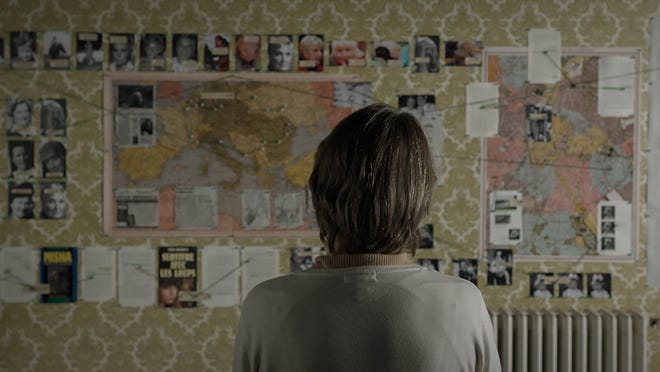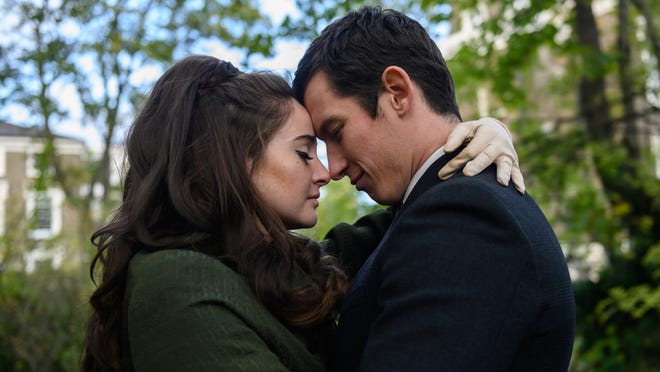[ad_1]
The riveting “Misha and the Wolves,” which premiered Sunday at Sundance Film Festival, tells the unbelievable story of writer Misha Defonseca, a Belgian woman living in Massachusetts with a jaw-dropping tale of how she survived the Holocaust.
In the mid-1990s, Defonseca told her friends about growing up as a young Jewish girl during World War II and being sent to live with a Catholic family after her parents were arrested by the Nazis. The family was cruel and she ran away, walking nearly 2,000 miles to Germany in search of her parents. All alone with just a compass and a knife, she says she befriended a pack of wolves in the forest, who “accepted and protected” her on the journey.
Ranked:All the best movies we saw at Sundance Film Festival (including werewolf tale ‘Eight for Silver’)

Astonished by her account, small publisher Jane Daniel saw potential for a hit book, and in 1997 published “Misha: A Mémoire of the Holocaust Years,” which Defonseca authored with a ghostwriter. The memoir was a modest success, which Daniel hoped to boost with a booked appearance on “Oprah.” But Defonseca unexpectedly canceled the night before the interview, and proceeded to sue her publisher for unpaid royalties. Daniel was financially ruined; meanwhile, the book became a sensation in Europe with a different publisher.
To say much more about “Misha” would spoil its many twists and turns, and resulting legal actions. The rest of the documentary plays like an espionage thriller, as Daniel enlists historians and genealogists to help uncover Defonseca’s past and see if she was scammed.
‘Mass’:Â Sundance drama looks at school shooting aftermath from a parents’ perspective
“Misha” director Sam Hobkinson initially read about Defonseca’s court case in a newspaper article in 2014.
“I went back and researched the story, and couldn’t believe it was true,” Hobkinson said in a post-screening Q&A. “It started with me finding what I thought would be a great story about storytelling. I wasn’t in the market to make a Holocaust documentary, but I realized that we ended up making a kind of Holocaust documentary, albeit quite a different one.”

The project proved difficult to finance, largely because it casts doubt on someone who says they survived the Holocaust. Six million Jews were killed by Nazi Germany and its collaborators in the early 1940s, yet Holocaust denial runs rampant in online forums such as Facebook. Anti-Semitic attacks hit an all-time high in the U.S. in 2019, and a recent survey found a “shocking” lack of Holocaust knowledge among millennials and Gen Z.
Survey:Almost two-thirds of millennials, Gen Z don’t know that 6 million Jews were killed in the Holocaust
“People were worried because they didn’t want to be involved in something that would fan the flames of Holocaust denial,” Hobkinson said. “Of course, that was foremost in our minds from the outset. We’ve always felt this is difficult territory, but you shouldn’t shy away from it. You’ve got to tackle the difficult subjects head-on. And I hope that we wrestle the story back from the Holocaust denial camp.”
Part of the way “Misha” accomplishes that is by putting Evelyne Haendel, a Holocaust survivor in Belgium, front and center. Haendel becomes a crucial character in the documentary’s second half, when she’s hired to investigate Defonseca and her family. She ultimately gets the last word, speaking frankly about Defonseca and her motivations at the film’s end.
Balancing the documentary’s sensational mystery with actual survivor stories was “paramount, because we didn’t want to feel we were playing into the hands of Holocaust deniers,” Hobkinson said.  “And the more we got to know Evelyne, the more we realized she was our star, really. She’s the sort of central, moral good. She was so honest and so open and so thoughtful in our interview that she became a much bigger part of the film.”
“Misha and the Wolves” will have a second virtual screening Tuesday (10 a.m. ET) at Sundance.
[ad_2]







